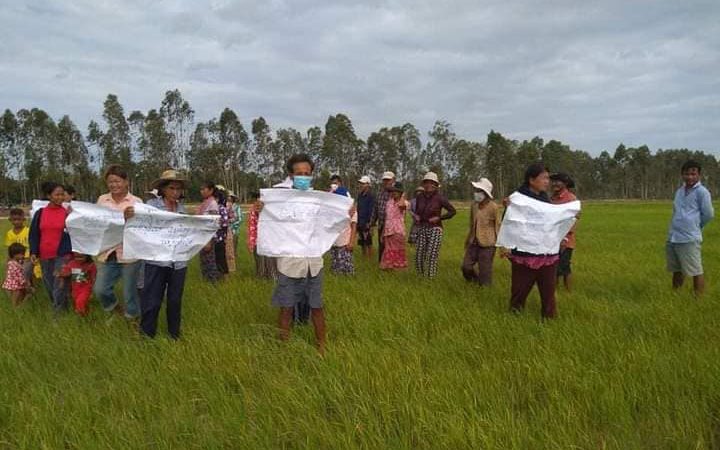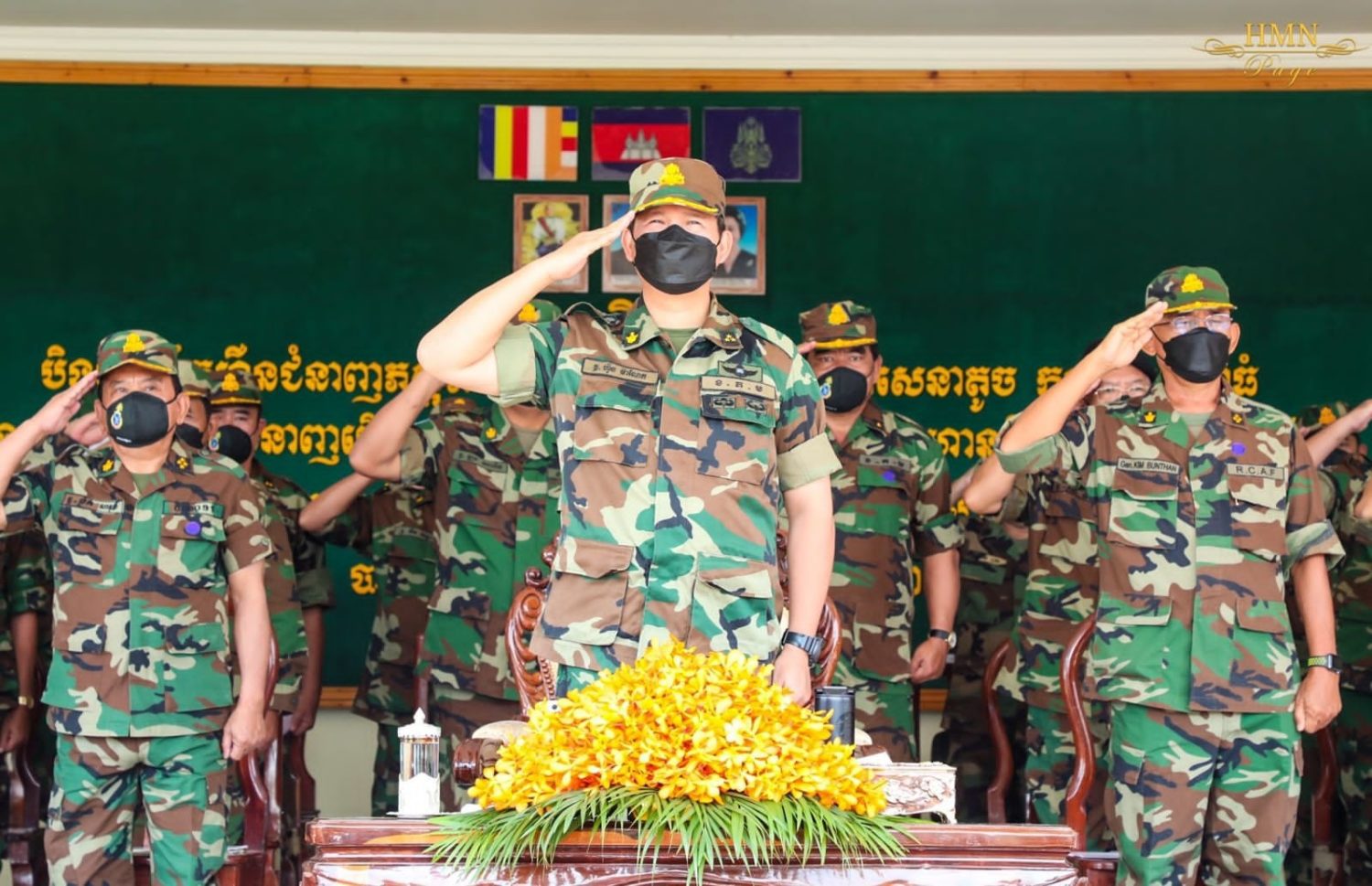A National Police document issued this month outlines a working group made up of top intelligence and security officials to “research, investigate and build legal cases” against the unrest caused by land disputants’ incitement.
The document, signed by National Police chief Neth Savoeun on August 12, assigns 17 national, municipal and provincial police officials to the working group, including Sok Lyda, Sok Sokhun and Um Sath, deputies of the intelligence department, and So Niya and Buth Phin, deputies in the central security department. Officials from the private security department are also members.
Heading the group is Dy Vichea, the husband of Prime Minister Hun Sen’s daughter Hun Mana. Vichea is a deputy commissioner of the National Police.
The tasks of the group as defined in the document include:
- “Collect information, research, investigate and build legal cases … on land disputes and illegal encroachment on state land and send them to the court.”
- “Use the intelligence forces in the capital and all the provinces to collect information, research and set local targets.”
- “Collect information on incitement activities, support and funding for the creation of protests or organizing of land disputes, and illegal encroachment on state land that causes unrest in the capital and provinces
National Police spokesperson Chhay Kim Khoeun said on Thursday that the working group was created two or three years ago, but its membership was being reshuffled.
“Regarding the cases, we have no capacity to arrest or detain. We just go to investigate,” Kim Khoeun said. “The most important thing is to investigate and collect the cases … and we want to clarify whether the case is true or not and to report the leaders.”
“The police investigate everything, you will also be investigated if someone complains against you,” he continued.
The land disputes, however, would be investigated even without a complaint, “to clarify for the leader in order to avoid the small issue becoming a big deal … whether an incident could occur or a provocateur is using personal conflict to create an incitement group.”
“This is a preventative measure so we can know in advance,” Kim Khoeun said. Anyone from civil society complaining about the work was only trying to create jobs for themselves by creating issues, he said.
Niya, one of the central security department deputies in the working group, declined to comment.
Reach Sema, a land protester involved in a dispute in Kampong Chhnang province with KDC International, a company run by the wife of the Energy Minister, said it sounded like more oppression.
“The group that the police has created to find the mastermind and inciter is just another form of intimidation and threat against people who want to express their freedoms, demand their rights, and protest for their land,” Sema said.
“It is to silence and destroy people’s representatives who are educated, and it is like the Khmer Rouge regime. They do not want to see people help protesters, to understand their issues.”
Sema said authorities should simply talk to villagers with grievances and help find solutions.
Land disputes are widespread across the country, with one report estimating that 770,000 Cambodians have been affected since 2000.
Am Sam Ath, a deputy director at rights group Licadho, said it was the first he had heard of the National Police working group.
Most state-land encroachment was backed by wealthy and powerful interests, so he hoped the working group would be able to track them down and hold them accountable before the law, Sam Ath said.
“The working group is not to solve land disputes — that is for the technical land management and relevant local authorities. This team is to prevent and crack down,” he said.













